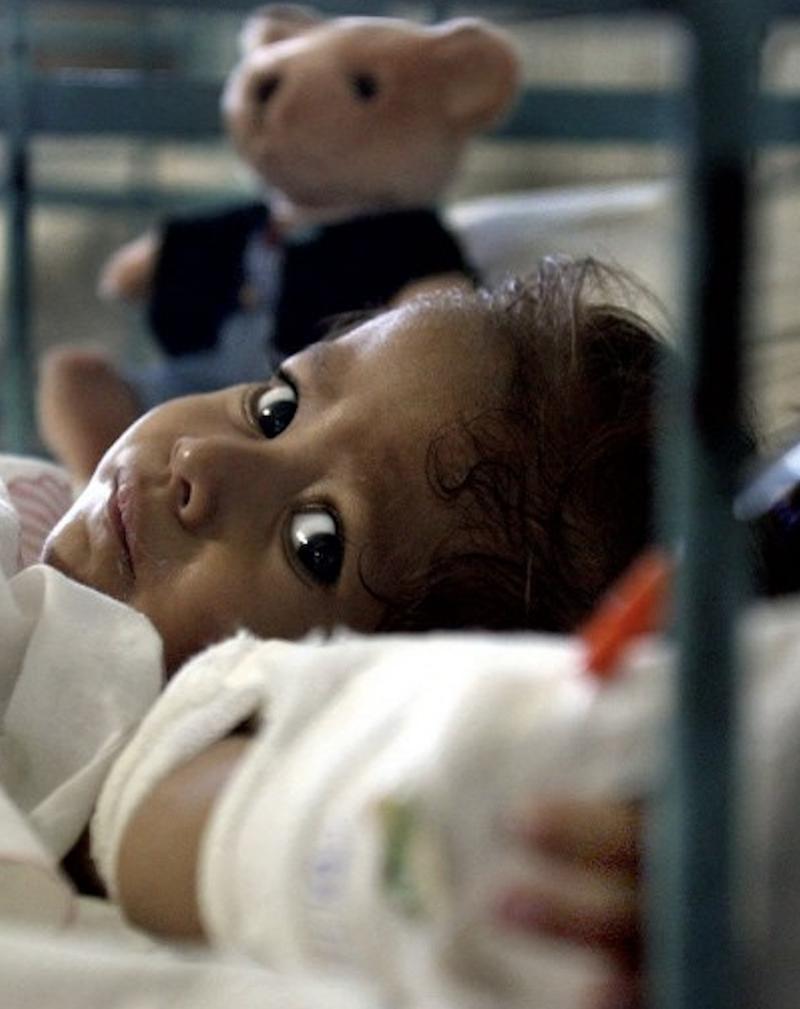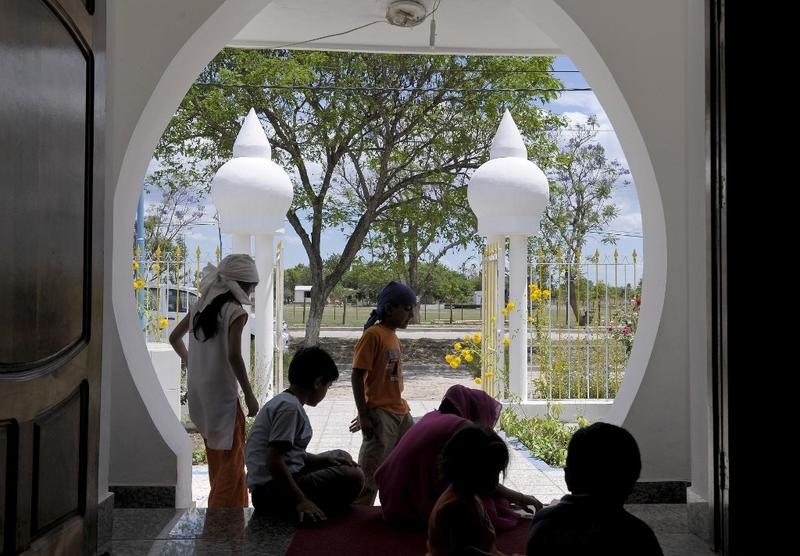 In this file photo, one-year-old Débora Galván, suffering from malnutrition, lies in a bed at the Niño Jesús Children's Hospital in the northern Argentine city of Tucuman, Nov 26, 2002. (ALI BURAFI / AFP)
In this file photo, one-year-old Débora Galván, suffering from malnutrition, lies in a bed at the Niño Jesús Children's Hospital in the northern Argentine city of Tucuman, Nov 26, 2002. (ALI BURAFI / AFP)
TARTAGAL, Argentina — In Argentina, once one of the world’s richest countries and long a major supplier of beef, children are dying of hunger.
In Argentina’s far northern province of Salta, in a small indigenous community plagued by extreme poverty, eight children died in January alone from malnutrition and a lack of access to clean drinking water, health authorities say.
The governor of Salta has declared a public health emergency, vowing to work with the national government to provide clean water in the province
The issue affects other places, too, and has prompted the national government to announce a plan to tackle hunger. The governor of Salta has declared a public health emergency, vowing to work with the national government to provide clean water in the province.
In the province last week, children from the Wichi community, with a population of just 1,200, played barefoot in the mud, outside homes constructed by hand from wood and cloth.
In Tartagal, the small town nearest to where the Wichi live, hospital beds are filled with Wichi children battling malnutrition and a host of other health issues linked to a lack of clean water, health officials said. Sometimes, the children arrive too late to make a recovery, according to Juan Lopez, manager of the hospital in Tartagal.
Complications related to the issues led to the deaths of the eight Wichi children in January, he said. The community also has one of the country’s highest rates of infant mortality.
 In this Oct 26, 2008 file photo, children of the Sikh community play at the entrance of the Guruduwara Nanaksar (Sikh temple), in Rosario de la Frontera, in the northern Argentine province of Salta, some 1300 km northwest of Buenos Aires. (JUAN MABROMATA / AFP)
In this Oct 26, 2008 file photo, children of the Sikh community play at the entrance of the Guruduwara Nanaksar (Sikh temple), in Rosario de la Frontera, in the northern Argentine province of Salta, some 1300 km northwest of Buenos Aires. (JUAN MABROMATA / AFP)
A spokesman for Argentina’s ministry of health said, “We are constantly liaising with the province of Salta. We are doing food assistance and health assistance.” He added that there were teams from the federal government working in the province.
Liliana Ciriaco, a 45-year-old Wichi woman, said in an interview that there had been “many sicknesses.”
“There are some pregnant women
“There are some pregnant women who die, there are children who die, the elderly, too, and we don’t know what is going on,” she said.
ALSO READ: Return of Peronism and Cristina raise hopes in Argentina
A century ago, Argentina was one of the world’s most affluent countries, but it has weathered a series of economic crises in recent decades. The latest one began in 2018. Inflation hovers above 50 percent and the poverty rate is at 35 percent. Argentina’s indigenous communities, historically poor, have been especially hard hit.
For the Wichi community, the lack of access to safe water is a critical problem.
“The place where they access their water source has high salinization or even chemicals that have been used for agriculture, which cause many gastrointestinal diseases, diarrhea, malnutrition and, above all, dehydration,” said Diego Tipping, president of the Red Cross in Argentina.
Argentina’s new center-left President Alberto Fernandez campaigned on promises to address hunger, poverty and unemployment. In December, he announced a plan to combat the issue in the most affected areas of the country called “Argentina Against Hunger.”
READ MORE: New law highlights food emergency in Argentina
Alejandro Deane, president of the Siwok Foundation, which is dedicated to improving water access for indigenous communities in northern Argentina, called the situation for the Wichi community “disastrous.”
“There is no good news. What needs to be done? What can be done? Here we need a long-term plan, not a short-term plan,” Deane said.


